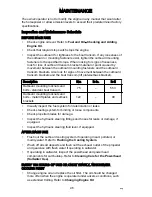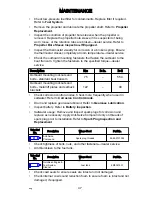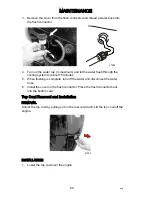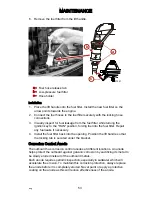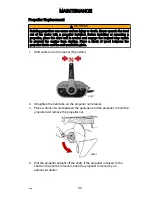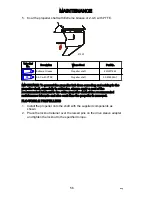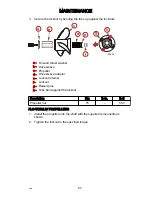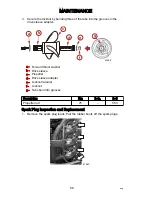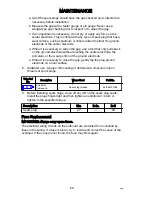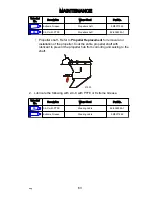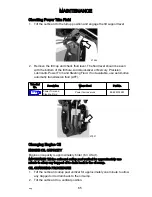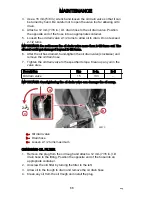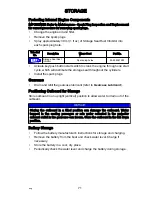
a. All of the spark plugs should have the gap checked and corrected as
necessary before installation.
b. Measure the gap with a feeler gauge or pin gauge. Never use a
wedge‑type gap checking tool to inspect or to adjust the gap.
c. If an adjustment is necessary, do not pry or apply any force on the
center electrode. This is critical with any type of spark plug that has a
wear surface, such as platinum or iridium added to either the ground
electrode or the center electrode.
d. When it is necessary to widen the gap, use a tool that only pulls back
on the ground electrode without touching the center electrode, the
porcelain, or the wear portion of the ground electrode.
e. When it is necessary to close the gap, gently tap the plug ground
electrode on a hard surface.
5. Saltwater use ‑ Apply a thin coating of Anti‑Seize Compound only on
threads of spark plugs.
Tube Ref
No.
Description
Where Used
Part No.
81
Anti-Seize
Compound
Spark plug threads
92-898101389
6. Before installing spark plugs, clean off any dirt on the spark plug seats.
Install the plugs finger‑tight and then tighten an additional 1/4 turn or
tighten to the specified torque.
Description
Nm
lb‑in.
lb‑ft
Spark plug
27
–
20
Fuse Replacement
IMPORTANT: Always carry spare fuses.
The electrical wiring circuits on the outboard are protected from overload by
fuses in the wiring. If a fuse is blown, try to locate and correct the cause of the
overload. If the cause is not found, the fuse may blow again.
MAINTENANCE
60
eng

